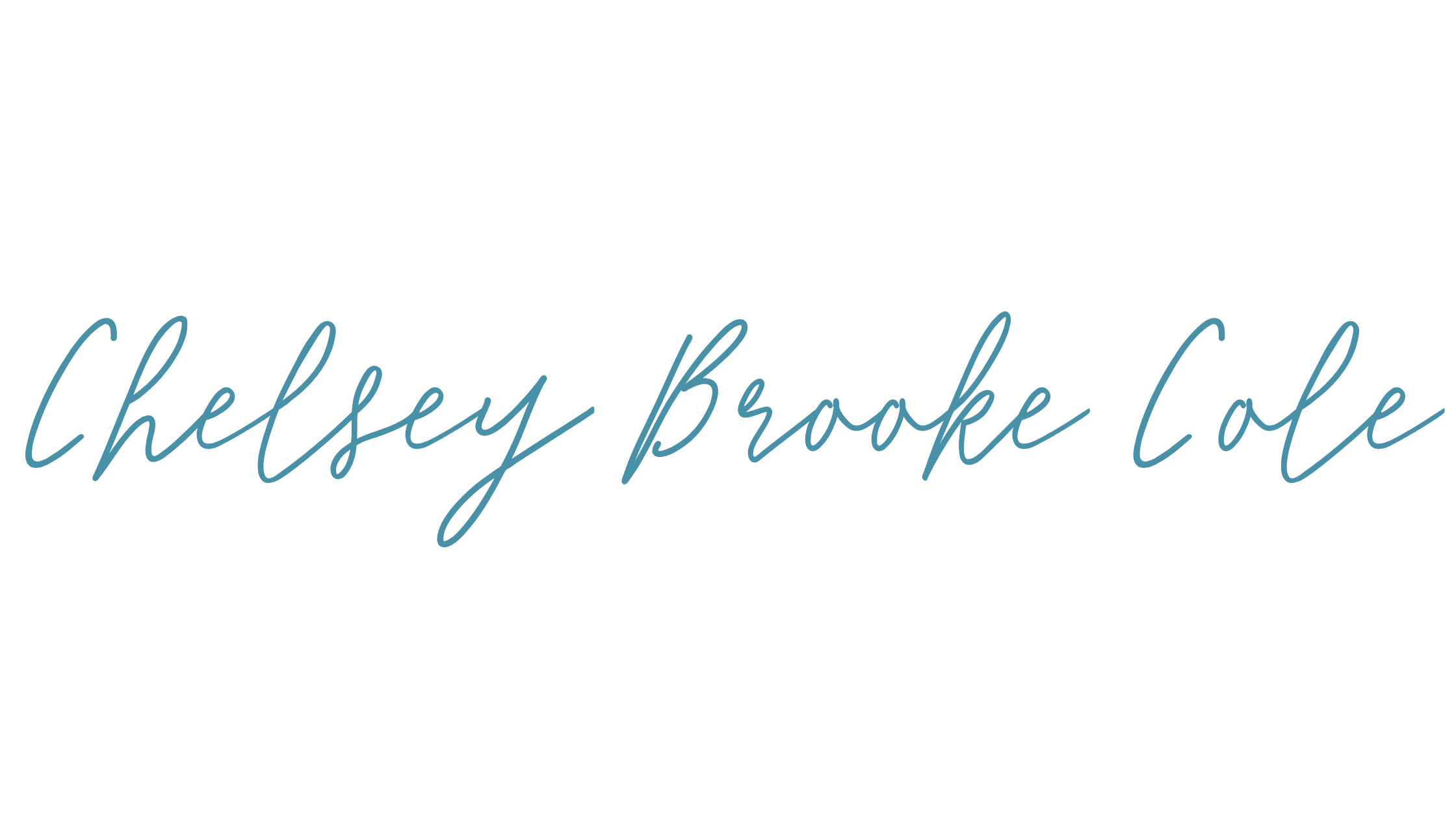Coaching vs. Psychotherapy: Choosing the Right Approach

I want to be very transparent about the differences between therapy and coaching so you can make an informed decision that is best for your needs!
Therapy and coaching are both valuable tools for personal growth, but they differ in their approach and focus. Therapy typically addresses mental health concerns and past experiences, while coaching focuses on achieving specific goals and developing skills for the future.
Coaching vs. Psychotherapy: Choosing the Right Approach

I want to be very transparent about the differences between therapy and coaching so you can make an informed decision that is best for your needs!
Therapy and coaching are both valuable tools for personal growth, but they differ in their approach and focus. Therapy typically addresses mental health concerns and past experiences, while coaching focuses on achieving specific goals and developing skills for the future.
Coaching vs. Psychotherapy: Choosing the Right Approach

I want to be very transparent about the differences between therapy and coaching so you can make an informed decision that is best for your needs!
Therapy and coaching are both valuable tools for personal growth, but they differ in their approach and focus. Therapy typically addresses mental health concerns and past experiences, while coaching focuses on achieving specific goals and developing skills for the future.
Differentiating Coaching and Psychotherapy
When to Seek Coaching:
- Goal Achievement: If you have specific, measurable goals you want to achieve—leaving a toxic relationship, increased self-esteem, healthier boundaries—coaching can provide structure, accountability, and guidance.
- Skill Development: Coaching is ideal for refining specific skills, like learning how to navigate coparenting issues with a toxic ex, be more assertive at work with an antagonistic boss or co-worker, or use more effective communication strategies with a difficult family member.
- Personal Growth: If you’re feeling “stuck,” coaching can help you identify obstacles, develop strategies, and move forward.
Differentiating Coaching and Psychotherapy
When to Seek Therapy:
- Mental Health Issues: If you’re experiencing symptoms of anxiety, depression, PTSD, or other mental health disorders, therapy can provide a diagnosis, treatment, and coping mechanisms.
- Trauma: Therapy offers a safe space to process and heal from past traumas, whether they’re recent or from childhood.
- Attachment Wounds: Therapy can help you navigate relationship challenges, create a more secure attachment style, and break trauma bonds, especially when you have a history of childhood trauma or come from a dysfunctional family system.
Differentiating Coaching and Psychotherapy
When to Seek Coaching:
- Goal Achievement: If you have specific, measurable goals you want to achieve—leaving a toxic relationship, increased self-esteem, healthier boundaries—coaching can provide structure, accountability, and guidance.
- Skill Development: Coaching is ideal for refining specific skills, like learning how to navigate coparenting issues with a toxic ex, be more assertive at work with an antagonistic boss or co-worker, or use more effective communication strategies with a difficult family member.
- Personal Growth: If you’re feeling “stuck,” coaching can help you identify obstacles, develop strategies, and move forward.
Differentiating Coaching and Psychotherapy
When to Seek Therapy:
- Mental Health Issues: If you’re experiencing symptoms of anxiety, depression, PTSD, or other mental health disorders, therapy can provide a diagnosis, treatment, and coping mechanisms.
- Trauma: Therapy offers a safe space to process and heal from past traumas, whether they’re recent or from childhood.
- Attachment Wounds: Therapy can help you navigate relationship challenges, create a more secure attachment style, and break trauma bonds, especially when you have a history of childhood trauma or come from a dysfunctional family system.
Differentiating Coaching and Psychotherapy
When to Seek Coaching:
- Goal Achievement: If you have specific, measurable goals you want to achieve—leaving a toxic relationship, increased self-esteem, healthier boundaries—coaching can provide structure, accountability, and guidance.
- Skill Development: Coaching is ideal for refining specific skills, like learning how to navigate coparenting issues with a toxic ex, be more assertive at work with an antagonistic boss or co-worker, or use more effective communication strategies with a difficult family member.
- Personal Growth: If you’re feeling “stuck,” coaching can help you identify obstacles, develop strategies, and move forward.
Differentiating Coaching and Psychotherapy
When to Seek Therapy:
- Mental Health Issues: If you’re experiencing symptoms of anxiety, depression, PTSD, or other mental health disorders, therapy can provide a diagnosis, treatment, and coping mechanisms.
- Trauma: Therapy offers a safe space to process and heal from past traumas, whether they’re recent or from childhood.
- Attachment Wounds: Therapy can help you navigate relationship challenges, create a more secure attachment style, and break trauma bonds, especially when you have a history of childhood trauma or come from a dysfunctional family system.
Types of Issues Addressed:
Coaching
- Figuring out what you want and making a plan to get it
- Building self-esteem
- Communicating more effectively, even with difficult people
- Dealing with conflict
- Handling stress
- Balancing work and life
- Growing as a person and finding yourself
- Setting healthier boundaries
- Overcoming life challenges
- Improving relationships
- Creating an authentic and purposeful life
- Getting unstuck
- Managing your time better and getting more done
Therapy
- Decreasing anxiety symptoms, like rumination, hypervigilance, and procrastination
- Dealing with depression or bipolar disorder
- Coping with past trauma or PTSD
- Managing relationships or family drama
- Healing from the effects of narcissistic abuse, childhood trauma, or complex trauma
- Creating a stronger sense of self by healing past wounds
- Developing healthier, more realistic thinking patterns
- Grounding techniques for anxiety and panic
- Addressing overwhelming or urgent emotional distress
- Managing symptoms associated with OCD, ADHD, MDD and other diagnosable mental health conditions
- Understanding emotional triggers and patterns
Types of Issues Addressed:
Coaching
- Figuring out what you want and making a plan to get it
- Building self-esteem
- Communicating more effectively, even with difficult people
- Dealing with conflict
- Handling stress
- Balancing work and life
- Growing as a person and finding yourself
- Setting healthier boundaries
- Overcoming life challenges
- Improving relationships
- Creating an authentic and purposeful life
- Getting unstuck
- Managing your time better and getting more done
Therapy
- Decreasing anxiety symptoms, like rumination, hypervigilance, and procrastination
- Dealing with depression or bipolar disorder
- Coping with past trauma or PTSD
- Managing relationships or family drama
- Healing from the effects of narcissistic abuse, childhood trauma, or complex trauma
- Creating a stronger sense of self by healing past wounds
- Developing healthier, more realistic thinking patterns
- Grounding techniques for anxiety and panic
- Addressing overwhelming or urgent emotional distress
- Managing symptoms associated with OCD, ADHD, MDD and other diagnosable mental health conditions
- Understanding emotional triggers and patterns
Types of Issues Addressed
Coaching
- Figuring out what you want and making a plan to get it
- Building self-esteem
- Communicating more effectively, even with difficult people
- Dealing with conflict
- Handling stress
- Balancing work and life
- Growing as a person and finding yourself
- Setting healthier boundaries
- Overcoming life challenges
- Improving relationships
- Creating an authentic and purposeful life
- Getting unstuck
- Managing your time better and getting more done
Therapy
- Decreasing anxiety symptoms, like rumination, hypervigilance, and procrastination
- Dealing with depression or bipolar disorder
- Coping with past trauma or PTSD
- Managing relationships or family drama
- Healing from the effects of narcissistic abuse, childhood trauma, or complex trauma
- Creating a stronger sense of self by healing past wounds
- Developing healthier, more realistic thinking patterns
- Grounding techniques for anxiety and panic
- Addressing overwhelming or urgent emotional distress
- Managing symptoms associated with OCD, ADHD, MDD and other diagnosable mental health conditions
- Understanding emotional triggers and patterns
Key Differences between Therapy and Coaching
Coaching is primarily goal-oriented and action-focused, aiming to enhance performance and achieve specific outcomes. It is generally present and future-oriented, with a solution-focused approach. In contrast, therapy involves a deeper exploration of thoughts, feelings, and behaviors, with the goal of improving mental health and addressing emotional issues.
TOPICS:
Coaching: Focuses on present and future goals, building strengths, and action-oriented strategies.
Therapy: Explores past experiences, emotional patterns, and underlying psychological issues.
STRUCTURE:
Coaching: Sessions are typically solution-focused and goal-oriented, with a focus on building strengths.
Therapy: Sessions may involve exploring emotions, past experiences, and developing coping mechanisms.
DURATION:
Coaching: Duration varies depending on goals and individual needs, but engagements can range from a few weeks to several months or years.
Therapy: The length of therapy depends on the nature and severity of the issues being addressed. Some individuals may benefit from short-term therapy, while others may require longer-term treatment.
FIT:
Coaching: Best suited for individuals who are generally mentally healthy and seeking to improve specific areas of their lives.
Therapy: Essential for those struggling with mental health issues, trauma, or significant emotional distress.
Key Differences Between Therapy and Coaching
Coaching is primarily goal-oriented and action-focused, aiming to enhance performance and achieve specific outcomes. It is generally present and future-oriented, with a solution-focused approach. In contrast, therapy involves a deeper exploration of thoughts, feelings, and behaviors, with the goal of improving mental health and addressing emotional issues.
TOPICS:
Coaching: Focuses on present and future goals, building strengths, and action-oriented strategies.
Therapy: Explores past experiences, emotional patterns, and underlying psychological issues.
STRUCTURE:
Coaching: Sessions are typically solution-focused and goal-oriented, with a focus on building strengths.
Therapy: Sessions may involve exploring emotions, past experiences, and developing coping mechanisms.
DURATION:
Coaching: Duration varies depending on goals and individual needs, but engagements can range from a few weeks to several months or years.
Therapy: The length of therapy depends on the nature and severity of the issues being addressed. Some individuals may benefit from short-term therapy, while others may require longer-term treatment.
FIT:
Coaching: Best suited for individuals who are generally mentally healthy and seeking to improve specific areas of their lives.
Therapy: Essential for those struggling with mental health issues, trauma, or significant emotional distress.
Key Differences Between Therapy and Coaching
Coaching is primarily goal-oriented and action-focused, aiming to enhance performance and achieve specific outcomes. It is generally present and future-oriented, with a solution-focused approach. In contrast, therapy involves a deeper exploration of thoughts, feelings, and behaviors, with the goal of improving mental health and addressing emotional issues.
TOPICS:
Coaching: Focuses on present and future goals, building strengths, and action-oriented strategies.
Therapy: Explores past experiences, emotional patterns, and underlying psychological issues.
STRUCTURE:
Coaching: Sessions are typically solution-focused and goal-oriented, with a focus on building strengths.
Therapy: Sessions may involve exploring emotions, past experiences, and developing coping mechanisms.
DURATION:
Coaching: Duration varies depending on goals and individual needs, but engagements can range from a few weeks to several months or years.
Therapy: The length of therapy depends on the nature and severity of the issues being addressed. Some individuals may benefit from short-term therapy, while others may require longer-term treatment.
FIT:
Coaching: Best suited for individuals who are generally mentally healthy and seeking to improve specific areas of their lives.
Therapy: Essential for those struggling with mental health issues, trauma, or significant emotional distress.
Interested in group coaching?
Join Chelsey’s small and intimate 10-week group program and get instant access to a group of fellow survivors who “get it” along with weekly workshops, exclusive healing content, customizable worksheets, a private group chat with Chelsey, and more!
Interested in Group Coaching?
Join Chelsey’s small and intimate 10-week group program and get instant access to a group of fellow survivors who “get it” along with weekly workshops, exclusive healing content, customizable worksheets, a private group chat with Chelsey, and more!
Interested in group coaching?
Join Chelsey’s small and intimate 10-week group program and get instant access to a group of fellow survivors who “get it” along with weekly workshops, exclusive healing content, customizable worksheets, a private group chat with Chelsey, and more!
My personalized coaching sessions will benefit you if you are:
> Feeling stuck in a toxic relationship
> Wondering how to co-parent with a narcissist
> Searching for answers about how to set boundaries with an antagonistic person
> Wishing to quiet your inner critic, eliminate comparison thoughts, and stop allowing overthinking to paralyze you
> Searching for specific guidance on how to let go of a toxic relationship

My Personalized Coaching Sessions Will Benefit You If You Are:
> Feeling stuck in a toxic relationship
> Wondering how to co-parent with a narcissist
> Searching for answers about how to set boundaries with an antagonistic person
> Wishing to quiet your inner critic, eliminate comparison thoughts, and stop allowing overthinking to paralyze you
> Searching for specific guidance on how to let go of a toxic relationship

My personalized coaching sessions will benefit you if you are:
> Feeling stuck in a toxic relationship
> Wondering how to co-parent with a narcissist
> Searching for answers about how to set boundaries with an antagonistic person
> Wishing to quiet your inner critic, eliminate comparison thoughts, and stop allowing overthinking to paralyze you
> Searching for specific guidance on how to let go of a toxic relationship

During Our Session You Will:
- Discover the key reasons you feel stuck and exactly how to get past them
- Create greater confidence by finally quieting your inner critic and setting guilt-free boundaries
- Trust yourself more by learning practical strategies for living, co-parenting, or working with toxic/antagonistic personalities
During Our Session You Will:
- Discover the key reasons you feel stuck and exactly how to get past them
- Create greater confidence by finally quieting your inner critic and setting guilt-free boundaries
- Trust yourself more by learning practical strategies for living, co-parenting, or working with toxic/antagonistic personalities
During Our Session You Will:
- Discover the key reasons you feel stuck and exactly how to get past them
- Create greater confidence by finally quieting your inner critic and setting guilt-free boundaries
- Trust yourself more by learning practical strategies for living, co-parenting, or working with toxic/antagonistic personalities
What to Expect During a Coaching Session

- Introduction and goal setting: We’ll get to know each other and discuss your goals for coaching.
- Assessment: I’ll ask questions to understand your current situation and identify areas for growth.
- Development of a coaching plan: We’ll work together to develop a personalized coaching plan that outlines the specific steps you’ll take to see changes in your life.
- Regular coaching sessions: We’ll meet on a regular basis (usually weekly or biweekly) to discuss progress, identify challenges, and make adjustments to the coaching plan as needed.
- Accountability and support: I’ll provide accountability and support to help you stay on track and not get stuck!
What to Expect During a Coaching Session

- Introduction and goal setting: We’ll get to know each other and discuss your goals for coaching.
- Assessment: I’ll ask questions to understand your current situation and identify areas for growth.
- Development of a coaching plan: We’ll work together to develop a personalized coaching plan that outlines the specific steps you’ll take to see changes in your life.
- Regular coaching sessions: We’ll meet on a regular basis (usually weekly or biweekly) to discuss progress, identify challenges, and make adjustments to the coaching plan as needed.
- Accountability and support: I’ll provide accountability and support to help you stay on track and not get stuck!
What to Expect During a Coaching Session

- Introduction and goal setting: We’ll get to know each other and discuss your goals for coaching.
- Assessment: I’ll ask questions to understand your current situation and identify areas for growth.
- Development of a coaching plan: We’ll work together to develop a personalized coaching plan that outlines the specific steps you’ll take to see changes in your life.
- Regular coaching sessions: We’ll meet on a regular basis (usually weekly or biweekly) to discuss progress, identify challenges, and make adjustments to the coaching plan as needed.
- Accountability and support: I’ll provide accountability and support to help you stay on track and not get stuck!
What to Expect During a Therapy Session
- You can expect to talk about your thoughts, feelings, and behaviors.
- I will listen attentively and ask open-ended questions to help you explore your inner world.
- You may be asked to discuss your past experiences, relationships, and current struggles.
- I will use various therapeutic techniques from IFS, DBT, CBT, ACT, and others to help you gain insight into your struggles and develop healthy coping skills.
- I often provide resources and suggestions for what to focus on in between sessions, such as journaling or practicing relaxation techniques, to help you make progress outside of therapy sessions.
- I will provide a safe and supportive environment where you can feel comfortable sharing your most personal thoughts and feelings.
What to Expect During a Therapy Session
- You can expect to talk about your thoughts, feelings, and behaviors.
- I will listen attentively and ask open-ended questions to help you explore your inner world.
- You may be asked to discuss your past experiences, relationships, and current struggles.
- I will use various therapeutic techniques from IFS, DBT, CBT, ACT, and others to help you gain insight into your struggles and develop healthy coping skills.
- I often provide resources and suggestions for what to focus on in between sessions, such as journaling or practicing relaxation techniques, to help you make progress outside of therapy sessions.
- I will provide a safe and supportive environment where you can feel comfortable sharing your most personal thoughts and feelings.
What to Expect During a Therapy Session
- You can expect to talk about your thoughts, feelings, and behaviors.
- I will listen attentively and ask open-ended questions to help you explore your inner world.
- You may be asked to discuss your past experiences, relationships, and current struggles.
- I will use various therapeutic techniques from IFS, DBT, CBT, ACT, and others to help you gain insight into your struggles and develop healthy coping skills.
- I often provide resources and suggestions for what to focus on in between sessions, such as journaling or practicing relaxation techniques, to help you make progress outside of therapy sessions.
- I will provide a safe and supportive environment where you can feel comfortable sharing your most personal thoughts and feelings.
What Clients Say:

Coaching Testimonial
“Working with Chelsey helps because she is so kind and understanding and deeply informed, and she truly meets you at the level you are at.”
Robert

Therapy Testimonial
“Chelsey helped me more in a two-hour time block, after she got to know my situation, than anyone or anything else I was doing. I’m alive, at a place of indifference, and doing well because of things I learned through working with her.”
Michael
What Clients Say:

Coaching Testimonial
“Working with Chelsey helps because she is so kind and understanding and deeply informed, and she truly meets you at the level you are at.”
Robert

Therapy Testimonial
“Chelsey helped me more in a two-hour time block, after she got to know my situation, than anyone or anything else I was doing. I’m alive, at a place of indifference, and doing well because of things I learned through working with her.”
Michael
What Clients Say:

Coaching Testimonial
“Working with Chelsey helps because she is so kind and understanding and deeply informed, and she truly meets you at the level you are at.”
Robert

Therapy Testimonial
“Chelsey helped me more in a two-hour time block, after she got to know my situation, than anyone or anything else I was doing. I’m alive, at a place of indifference, and doing well because of things I learned through working with her.”
Michael
Q & A
Who is eligible to receive coaching?
Coaching is available to those anywhere in the world! However, coaching isn’t appropriate if you’re currently experiencing significant mental health issues or thoughts of self-harm, suicide, or harm to others. If you are experiencing any of these concerns, please seek the help of a therapist licensed in your area.
Is everything I share in therapy or coaching confidential?
I want to be transparent about the limits of confidentiality to ensure a safe and trusting environment for our work together. While your privacy is very important, there are certain situations where I may be legally or ethically obligated to disclose information. This includes instances of suspected child abuse, threats of harm to yourself or others, or when mandated by law. I will always strive to inform you if such circumstances arise, and we can discuss the implications together. My goal is to create a supportive space where you can feel comfortable sharing your experiences, while also understanding the boundaries that exist to protect not only you but also the wellbeing of others.
As a coach, can you give me a superbill to submit to my insurance?
If we’re working together in a coaching relationship, I am not acting in my capacity as a therapist. Therefore, I’m not able to provide you with a superbill, because we’re not engaging in therapy. As a coach, I’m also not able to sign any kind of health, medical, or work-related document.
Who is eligible to receive therapy?
I am licensed to offer therapy to those residing in KY and TN in the US.
Does therapy include aspects of coaching?
Yes! In therapy, we’re able to dive into the past, present, and future. Many times, therapy work includes aspects of coaching, like goal-setting, building your strengths, and helping you stay accountable. On the other hand, coaching has limitations. Coaching is future-oriented and goals-focused. Coaching does not include aspects of therapy, such as diagnosing, dealing with significant mental health issues, or processing past traumas.
Do you offer in-person or virtual sessions?
Currently, I offer telehealth services only. I can provide you with a secure video link via SimplePractice.
How much do therapy/coaching sessions cost?
The same rates apply for both psychotherapy and coaching sessions. The rates are as follows:
Individuals
25-min sessions: $87
45-50 min sessions: $175
80-min sessions: $280
Currently, I don’t offer couple or family sessions.
Any length of session that falls outside of the previously mentioned ranges, paperwork sent for review, or collaboration done on your behalf will be billed at a prorated amount.
What if I can't afford your therapy or coaching services? Are there other ways to work with you?
I understand everyone isn’t able to afford individual therapy or coaching sessions, which is why I also offer a group program and wrote my bestselling book! For free resources, get my bimonthly newsletter to start or strengthen your healing journey!
Q & A
Who is eligible to receive coaching?
Coaching is available to those anywhere in the world! However, coaching isn’t appropriate if you’re currently experiencing significant mental health issues or thoughts of self-harm, suicide, or harm to others. If you are experiencing any of these concerns, please seek the help of a therapist licensed in your area.
Is everything I share in therapy or coaching confidential?
I want to be transparent about the limits of confidentiality to ensure a safe and trusting environment for our work together. While your privacy is very important, there are certain situations where I may be legally or ethically obligated to disclose information. This includes instances of suspected child abuse, threats of harm to yourself or others, or when mandated by law. I will always strive to inform you if such circumstances arise, and we can discuss the implications together. My goal is to create a supportive space where you can feel comfortable sharing your experiences, while also understanding the boundaries that exist to protect not only you but also the wellbeing of others.
As a coach, can you give me a superbill to submit to my insurance?
If we’re working together in a coaching relationship, I am not acting in my capacity as a therapist. Therefore, I’m not able to provide you with a superbill, because we’re not engaging in therapy. As a coach, I’m also not able to sign any kind of health, medical, or work-related document.
Who is eligible to receive therapy?
I am licensed to offer therapy to those residing in KY and TN in the US.
Does therapy include aspects of coaching?
Yes! In therapy, we’re able to dive into the past, present, and future. Many times, therapy work includes aspects of coaching, like goal-setting, building your strengths, and helping you stay accountable. On the other hand, coaching has limitations. Coaching is future-oriented and goals-focused. Coaching does not include aspects of therapy, such as diagnosing, dealing with significant mental health issues, or processing past traumas.
Do you offer in-person or virtual sessions?
Currently, I offer telehealth services only. I can provide you with a secure video link via SimplePractice.
How much do therapy/coaching sessions cost?
The same rates apply for both psychotherapy and coaching sessions. The rates are as follows:
Individuals
25-min sessions: $87
45-50 min sessions: $175
80-min sessions: $280
Currently, I don’t offer couple or family sessions.
Any length of session that falls outside of the previously mentioned ranges, paperwork sent for review, or collaboration done on your behalf will be billed at a prorated amount.
What if I can't afford your therapy or coaching services? Are there other ways to work with you?
I understand everyone isn’t able to afford individual therapy or coaching sessions, which is why I also offer a group program and wrote my bestselling book! For free resources, get my bimonthly newsletter to start or strengthen your healing journey!
Q & A
Who is eligible to receive coaching?
Coaching is available to those anywhere in the world! However, coaching isn’t appropriate if you’re currently experiencing significant mental health issues or thoughts of self-harm, suicide, or harm to others. If you are experiencing any of these concerns, please seek the help of a therapist licensed in your area.
Is everything I share in therapy or coaching confidential?
I want to be transparent about the limits of confidentiality to ensure a safe and trusting environment for our work together. While your privacy is very important, there are certain situations where I may be legally or ethically obligated to disclose information. This includes instances of suspected child abuse, threats of harm to yourself or others, or when mandated by law. I will always strive to inform you if such circumstances arise, and we can discuss the implications together. My goal is to create a supportive space where you can feel comfortable sharing your experiences, while also understanding the boundaries that exist to protect not only you but also the wellbeing of others.
As a coach, can you give me a superbill to submit to my insurance?
If we’re working together in a coaching relationship, I am not acting in my capacity as a therapist. Therefore, I’m not able to provide you with a superbill, because we’re not engaging in therapy. As a coach, I’m also not able to sign any kind of health, medical, or work-related document.
Who is eligible to receive therapy?
I am licensed to offer therapy to those residing in KY and TN in the US.
Does therapy include aspects of coaching?
Yes! In therapy, we’re able to dive into the past, present, and future. Many times, therapy work includes aspects of coaching, like goal-setting, building your strengths, and helping you stay accountable. On the other hand, coaching has limitations. Coaching is future-oriented and goals-focused. Coaching does not include aspects of therapy, such as diagnosing, dealing with significant mental health issues, or processing past traumas.
Do you offer in-person or virtual sessions?
Currently, I offer telehealth services only. I can provide you with a secure video link via SimplePractice.
How much do therapy/coaching sessions cost?
The same rates apply for both psychotherapy and coaching sessions. The rates are as follows:
Individuals
25-min sessions: $87
45-50 min sessions: $175
80-min sessions: $280
Currently, I don’t offer couple or family sessions.
Any length of session that falls outside of the previously mentioned ranges, paperwork sent for review, or collaboration done on your behalf will be billed at a prorated amount.
What if I can't afford your therapy or coaching services? Are there other ways to work with you?
I understand everyone isn’t able to afford individual therapy or coaching sessions, which is why I also offer a group program and wrote my bestselling book! For free resources, get my bimonthly newsletter to start or strengthen your healing journey!
Ready For Change?
Contact me today and let’s start your healing journey together!
Ready For Change?
Contact me today and let’s start your healing journey together!
Ready For Change?
Contact me today and let’s start your healing journey together!
